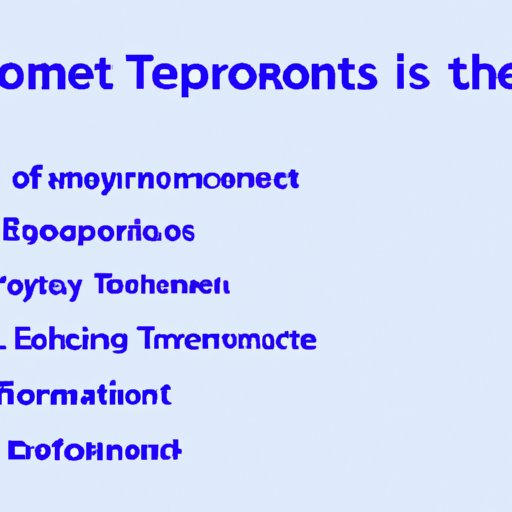Introduction
Cryptocurrency tokens have become a major part of the digital asset landscape over the past few years. In simple terms, a cryptocurrency token is a digital asset that has been issued on a blockchain network. As such, they are often referred to as “digital assets” or “blockchain tokens”. They can be used for a variety of purposes, from representing a financial stake in a project to being used as a medium of exchange.
Definition of Cryptocurrency Tokens
Cryptocurrency tokens are digital assets created on a blockchain network. Tokens are typically issued through an Initial Coin Offering (ICO) or Token Generation Event (TGE). These events enable companies, projects, and organizations to raise funds by selling digital tokens to investors. The digital tokens are then used to access certain services or products offered by the issuing company or project.

Overview of How They Work
Crypto tokens are created and stored on a blockchain network. They are distributed and exchanged using smart contracts, which are self-executing contracts that are programmed to execute automatically when certain conditions are met. Each token is associated with a unique address, which is similar to a bank account number. This makes it easy to transfer, store, and track tokens over the blockchain.
Types of Crypto Tokens
Crypto tokens come in many different forms, each with its own purpose and characteristics. Some of the most common types of tokens include:
Security Tokens
Security tokens represent a financial stake in a project. They are designed to give holders a share of the profits generated by the project. Security tokens are highly regulated, as they are subject to securities laws. As such, they must adhere to strict compliance regulations.
Utility Tokens
Utility tokens are designed to provide access to a specific service or product offered by a company or project. These tokens can be used to pay for goods and services, or to unlock new features within a platform. Unlike security tokens, utility tokens are not subject to stringent regulation.
Asset-Backed Tokens
Asset-backed tokens are digital representations of real-world assets. They are designed to bridge the gap between traditional financial markets and the world of cryptocurrency. Asset-backed tokens are secured by physical assets, such as gold, silver, or other commodities. They can also be backed by real estate or other forms of tangible property.
Token Economics
Token economics is the study of how tokenized assets interact with each other within a blockchain ecosystem. It focuses on the supply, demand, and market dynamics of tokens, and how these factors affect the value of tokens. Token economics also looks at how different types of tokens interact with each other, as well as their impact on the overall market.
What is Token Economics?
Token economics is the study of how tokens interact with each other within a blockchain ecosystem. It examines the supply, demand, and market dynamics of tokens, and how these factors affect the value of tokens. Token economics also looks at how different types of tokens interact with each other, as well as their impact on the overall market.

Benefits and Challenges of Token Economics
Token economics offers a number of benefits, including increased liquidity, greater price transparency, and improved market efficiency. However, there are also challenges associated with token economics, such as scalability issues and the potential for manipulation. Additionally, token economics is still a relatively new field, and as such, there is still much to be learned about its effects on the overall market.
Investing in Cryptocurrency Tokens
Investing in cryptocurrency tokens can be a lucrative endeavor, but it comes with its own set of risks. Before investing, it is important to do your research and understand the fundamentals of the project you are investing in. Additionally, it is important to understand the risk profile of the project and the token itself.
Researching Token Projects
Before investing in any token project, it is important to thoroughly research the project and its team. This includes looking at the team’s experience, the project’s roadmap, and the token’s use case. It is also important to read up on the project’s whitepaper, as this will provide insight into the project’s goals, objectives, and plans for the future.
Determining Investment Risk
It is also important to understand the risk associated with a token project before investing. Different projects have different risk profiles, so it is important to understand the risks associated with a project before investing. This includes understanding the volatility of the token’s price, the project’s legal status, and any regulatory concerns.
Tracking the Market Value of Crypto Tokens
Once you have invested in a token project, it is important to track the market value of the tokens. This can be done by monitoring the price of the token on various exchanges, as well as tracking news and developments related to the project. Tracking the market value of tokens can help you make informed decisions about when to buy and sell tokens.
Benefits of Holding Crypto Tokens
Holding crypto tokens has a number of benefits. For one, it provides increased liquidity, as tokens can be easily traded on exchanges. Additionally, tokens can be used to diversify a portfolio, as they offer exposure to different asset classes. Finally, tokens can provide access to new markets, enabling investors to gain exposure to markets that may otherwise be inaccessible.

Examining the Future of Crypto Tokens
The future of crypto tokens is uncertain, but there are some key trends that are likely to shape the industry. Compliance and regulation are expected to play a major role, as governments around the world begin to impose stricter rules on token issuers. Additionally, adoption by financial institutions is likely to increase, as more firms recognize the potential of blockchain technology. Finally, the expansion of use cases is likely to drive further growth in the industry.
Conclusion
Crypto tokens are becoming increasingly popular as a form of digital asset. They come in a variety of forms, from security tokens to utility tokens, each with its own purpose and characteristics. Token economics is also becoming an important factor in the industry, as it examines the supply, demand, and market dynamics of tokens. Finally, investing in crypto tokens can be a lucrative endeavor, provided one does their research and understands the risks associated with token projects.
(Note: Is this article not meeting your expectations? Do you have knowledge or insights to share? Unlock new opportunities and expand your reach by joining our authors team. Click Registration to join us and share your expertise with our readers.)
